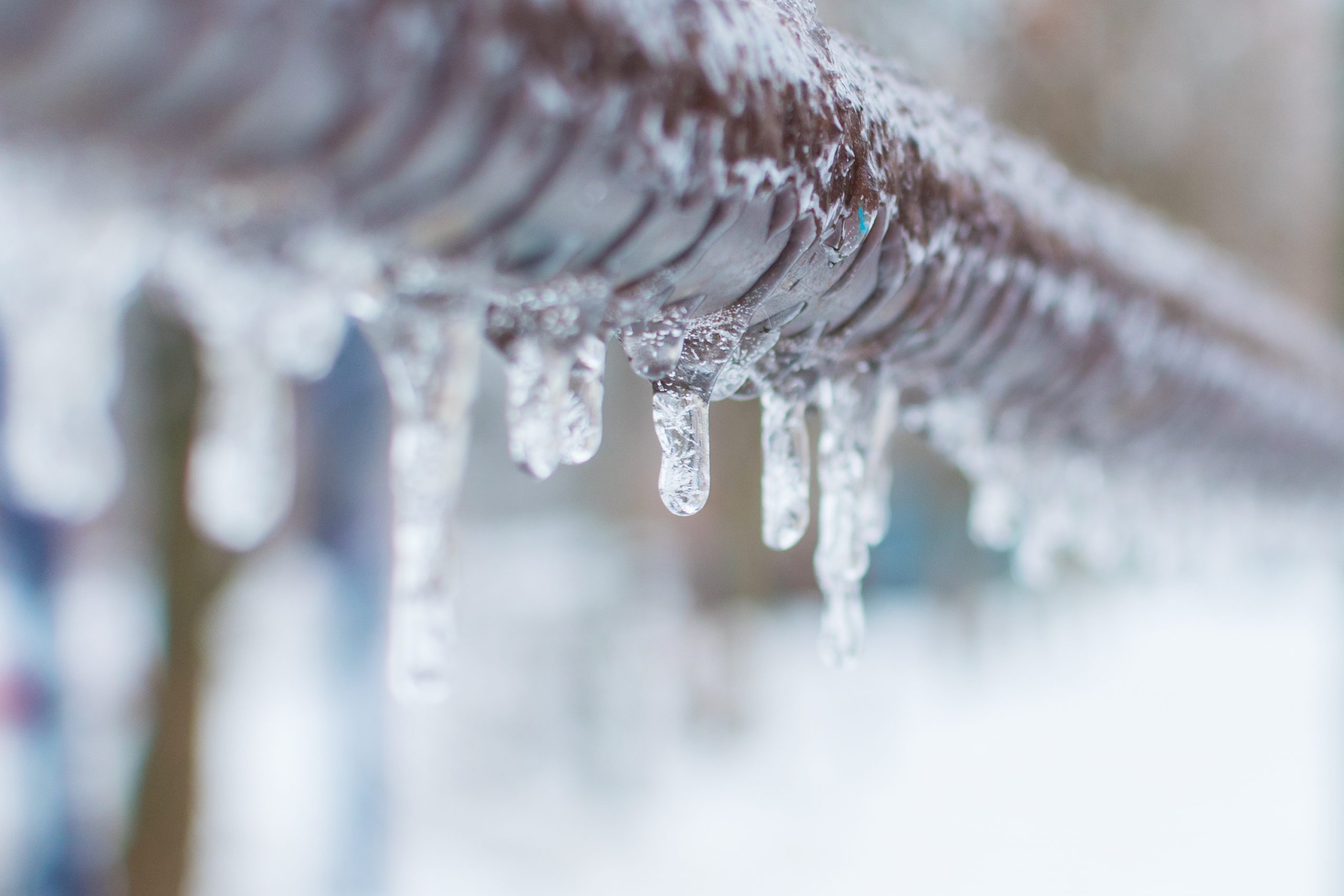Frozen Pipes: What You Need To Know
Don’t be kept frozen out this winter. Knowing the signs of frozen pipes can help prevent a burst pipe.
Dayton Ritz + Osborne is here to provide tips for protecting your home this winter.
Winter is here and with that comes freezing temperatures and, more importantly, freezing pipes. If you turn on a faucet and only a trickle comes out, that might mean a frozen pipe. Low temperatures can cause pipes to freeze, but that can also happen due to poor insulation in areas like basements, attics, garages, and kitchen cabinets; and from thermostats set below 55 degrees. As pipes freeze, water expands, and no matter the material—metal or plastic—the tremendous pressure can cause the pipe to break, leading to water damage in your basement and other areas. Here are tips to protect your pipes, prevent a burst, and what your homeowners’ insurance covers, should you need a plumber.
What to Do if Your Pipes are Frozen
When your pipes freeze there are many things you can do to reverse the process. Here are some tips to help:
- Keep your home thermostat above 55 degrees. Keeping the house at a warmer temperature will stop any further freezing in poorly insulated areas like kitchen cabinets and crawl spaces.
- Keep the faucet open. As the frozen area begins to melt, water will begin to flow and running water through the pipe will help speed melting.
- Apply heat to the section of the frozen pipe. Wrap an electric heating pad around the pipe (being careful not to have anything electric come into contact with water), use an electric hair dryer or a portable space heater (kept away from flammable materials), or wrap pipes with towels soaked in hot water to begin thawing them out.
- Apply heat until the full water pressure is restored. Heat will allow the water to flow freely once thawed, but if you are unable to locate the frozen area, the frozen area is not accessible, or if you can not thaw the pipe, call a licensed plumber.
- Check all other faucets in your home to find out if you have additional frozen pipes. If one pipe freezes, others may freeze too.
What are the Signs of a Burst Pipe?
The last thing you want as a result of frozen pipes is a burst. But sometimes it’s hard to know when it occurs. Here are a few things to look out for:
- Fluctuating water pressure. Water pressure can be an indicator of a burst pipe. If you are taking a shower and suddenly feel like you are getting no pressure, then a burst of pressure, you may have a burst that requires a plumber.
-
- Discolored or smelly water. When a burst occurs underground, dirt and other contaminants get into the pipes. The longer the pipe remains exposed, the quicker it rusts, giving the water a brownish tint. The rust particles become a breeding ground for bacteria. If you notice any discoloration or the smell of “rotten eggs,” call a plumber immediately.
- Dripping or clanging sounds in the wall. While gurgling sounds are normal, as it is a sign of fluctuation in water pressure, dripping or clanging are signs of a burst pipe.
- Mold. Excess moisture in the walls causes mold. Call a plumber to examine the inside pipes if you notice mold forming on the walls, mildew, or a musty smell.
- Puddles under sinks or water marks on walls. Burst pipes cause standing water, which typically forms under sinks or near the exposed pipe. You may also notice water stains. Most pipes run behind walls; if there is a leak the walls will begin to show stains in the affected areas.
Will Frozen Pipes Thaw on Their Own?
Pipes will eventually unfreeze on their own, but the “wait and watch” method takes time, making the freezing much worse. This could lead to pipes bursting and causing significantly more damage. It’s far better to take the necessary steps to thaw pipes as soon as they freeze.
Does My Homeowner’s Insurance Cover Pipe Bursts?
The answer is yes. Most standard homeowners’ insurance policies cover water damage, both sudden and accidental, and that includes a burst pipe.
If your homeowners’ insurance does not cover bursts, our extensive network of insurance companies, combined with our expertise, will provide you with access to the proper homeowner’s coverage and the level of protection your home needs. Let a qualified Dayton Ritz + Osborne insurance expert assist you with any questions and help connect you with the best coverage options for your home in the Hamptons.
For more information on our policies, call us at 631-324-0420 or contact us today.
Disclaimer
The above description provides a brief overview of the term and phrases used within the insurance industry. These definitions are not applicable in all states or for all insurance and financial products. This is not an insurance contract. Other terms, conditions and exclusions apply. Please read your official policy or full details about coverage. These definitions do not alter or modify the terms of any insurance contract. If there is any conflict between these definitions and the provisions of the applicable insurance policy, the terms of the policy control.
